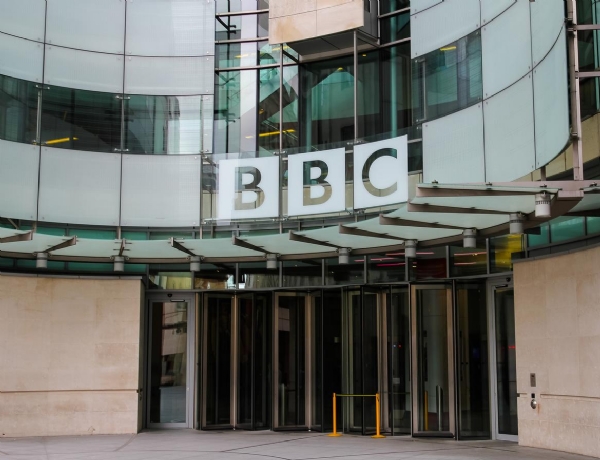BBC is damaging Britain's image by alienating potential allies and projecting an image of entitlement and sanctimony. During a Hard Talk interview, President Irfan Ali of Guyana rebuked BBC interviewer Stephen Sackur, stating that his country engages in significant forest conservation efforts without receiving due credit or compensation while the developed world enjoys the benefits of energy consumption since the industrial revolution. President Ali went on to question whether the BBC is influenced by those who have harmed the environment. This interview quickly went viral, with widespread praise for President Ali as the voice of the Global South. However, the response also reflected anger and disgust towards the BBC for its hypocrisy, colonialist tone, and apparent advocacy for the globalist elite and vested interests.
The BBC, along with a few other Western media outlets such as The New York Times, The Washington Post, Financial Times, and Deutsche Welle, has aligned itself with powerful left-leaning globalist networks that seek to undermine governments unwilling to conform to their agenda. Through its excessive bias, the BBC violates the fundamental principle of Britain's Royal Charter, which defines its "Public Purposes" as providing impartial news and information to help people understand and engage with the world. The BBC has failed to convince the world that it uses British taxpayers' money to deliver "impartial news and information."
The UK's Conservative Party has long criticized the BBC for its strong pro-Labour and pro-left bias. Former Prime Minister Margaret Thatcher famously stated, "I have fought three elections against the BBC and don't want to fight another against it." Indarjit Singh, the head of Britain's Network of Sikh Organisations, criticized stations like BBC Asian Network for hindering integration and social cohesion by allowing communities to isolate themselves. The BBC had halted the broadcast of a show commemorating Sikh Guru Tegh Bahadur, who was beheaded in the 17th century for opposing forced conversions to Islam in India, citing concerns about offending Muslims.
The BBC has faced bans in Russia and China. In India, the BBC has long been perceived as pro-Pakistan.
Recently, the BBC was found guilty of tax evasion and initially tried to portray it as retaliation by the Indian government. However, the BBC later admitted to underreporting Rs 40 crore ($4.8 million) of income in its tax returns. This incident followed a suspiciously timed documentary titled "India: The Modi Question," released before the 2024 elections. Through a series of opinions and innuendos, the documentary attempted to implicate Prime Minister Narendra Modi, in the 2002 Gujarat riots, despite his exoneration by the courts a decade earlier.
The BBC's consistent anti-India and anti-Hindu positions on various issues such as the anti-CAA protests, farmers' agitation, abrogation of Article 370 in Kashmir, Ram Mandir pran pratistha, Leicester riots, or the hijab-in-schools controversy raise the question: is the BBC doing a great disservice to once-Great Britain? The answer seems clear.
The BBC undermines the UK's economy, security, law and order, and demographic future by consistently adopting a left-leaning, pro-immigrant stance. The organization avoids addressing issues of Islamic radicalization and terrorism. Moreover, it damages Britain's by provoking potential allies and appearing as an entitled and sanctimonious attack dog for the UK .
Joe Biden's Letter to Shehbaz Sharif: A Potential Shift in US-Pakistan Relations
A letter from US President Joe Biden to Pakistan's Prime Minister has recently sparked intrigue and speculation regarding the future of US-Pakistan relations. This communication serves as the first official contact between the two leaders, signalling a potential shift in US policy towards Pakistan.
Since assuming office in 2021, President Biden had not engaged directly with either former Prime Minister Imran Khan or his successor, Shahbaz Sharif. The absence of interaction raised questions about the status of bilateral relations.
However, Biden's letter to Prime Minister Shahbaz Sharif, which expresses support and emphasizes the importance of the partnership between the two nations, suggests a change in approach. Despite concerns within Biden's party regarding the legitimacy of Sharif's government, the president chose to extend a hand of cooperation.
The timing of this outreach is significant, especially considering the recent visit of an International Monetary Fund (IMF) team to Pakistan and their agreement to release substantial funds to the government. As the United States plays a dominant role in the IMF, this development indicates a willingness to support Pakistan financially.
The apparent thaw in US-Pakistan relations raises questions about the underlying motivations. One possible factor is Pakistan's reported assistance to Ukraine during its conflict with Russia, which garnered appreciation from Washington. Additionally, the resurgence of threats from terrorist groups in Afghanistan, despite US hopes for stability after withdrawing troops, has refocused attention on regional security.
Experts speculate that Biden's outreach to Pakistan may aim to leverage Islamabad's assistance in containing terrorism, particularly in light of recent attacks by the Islamic State in neighboring countries.
Will this renewed engagement between the United States and Pakistan lead to meaningful collaboration, or will past pitfalls overshadow any potential progress?


No comments:
Post a Comment